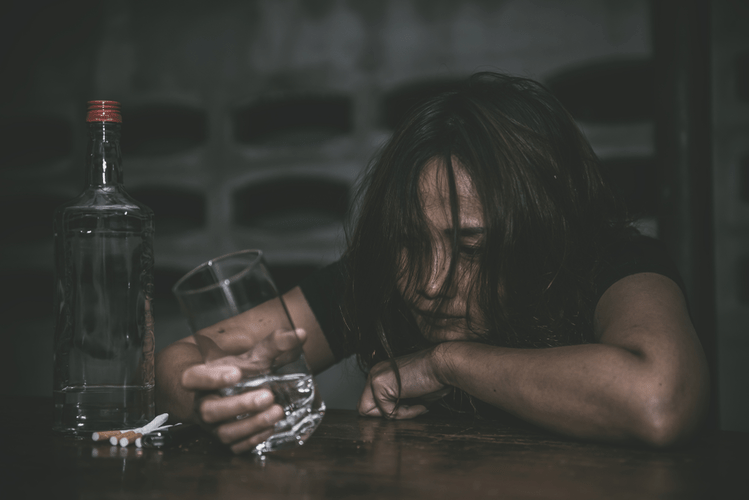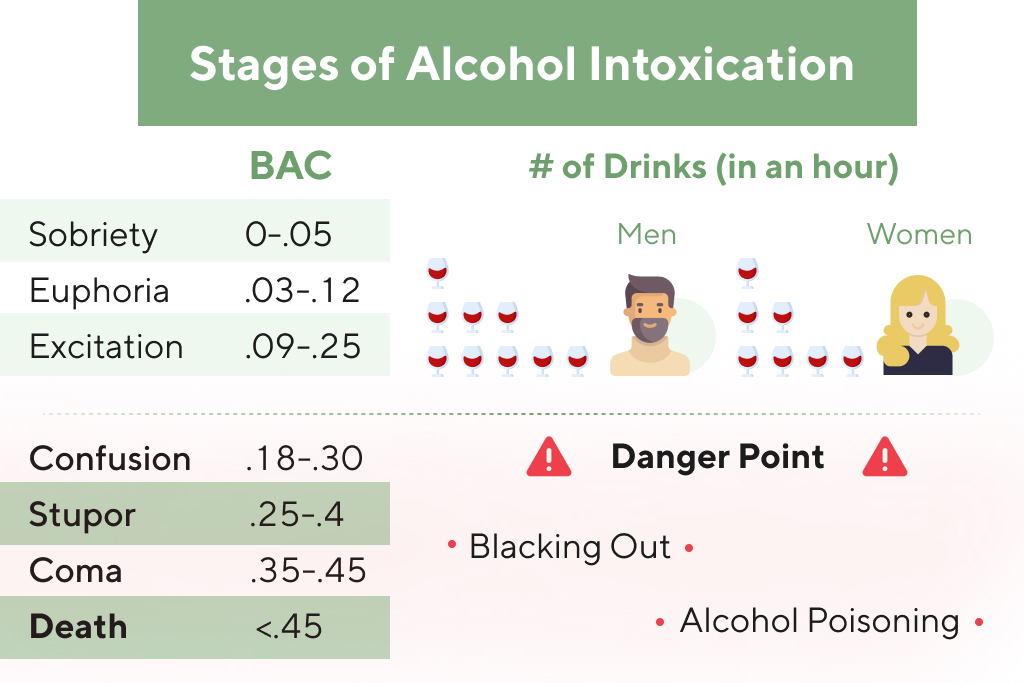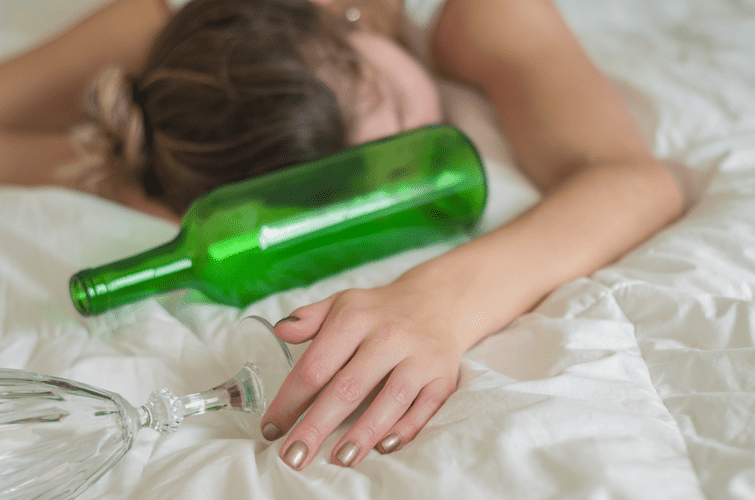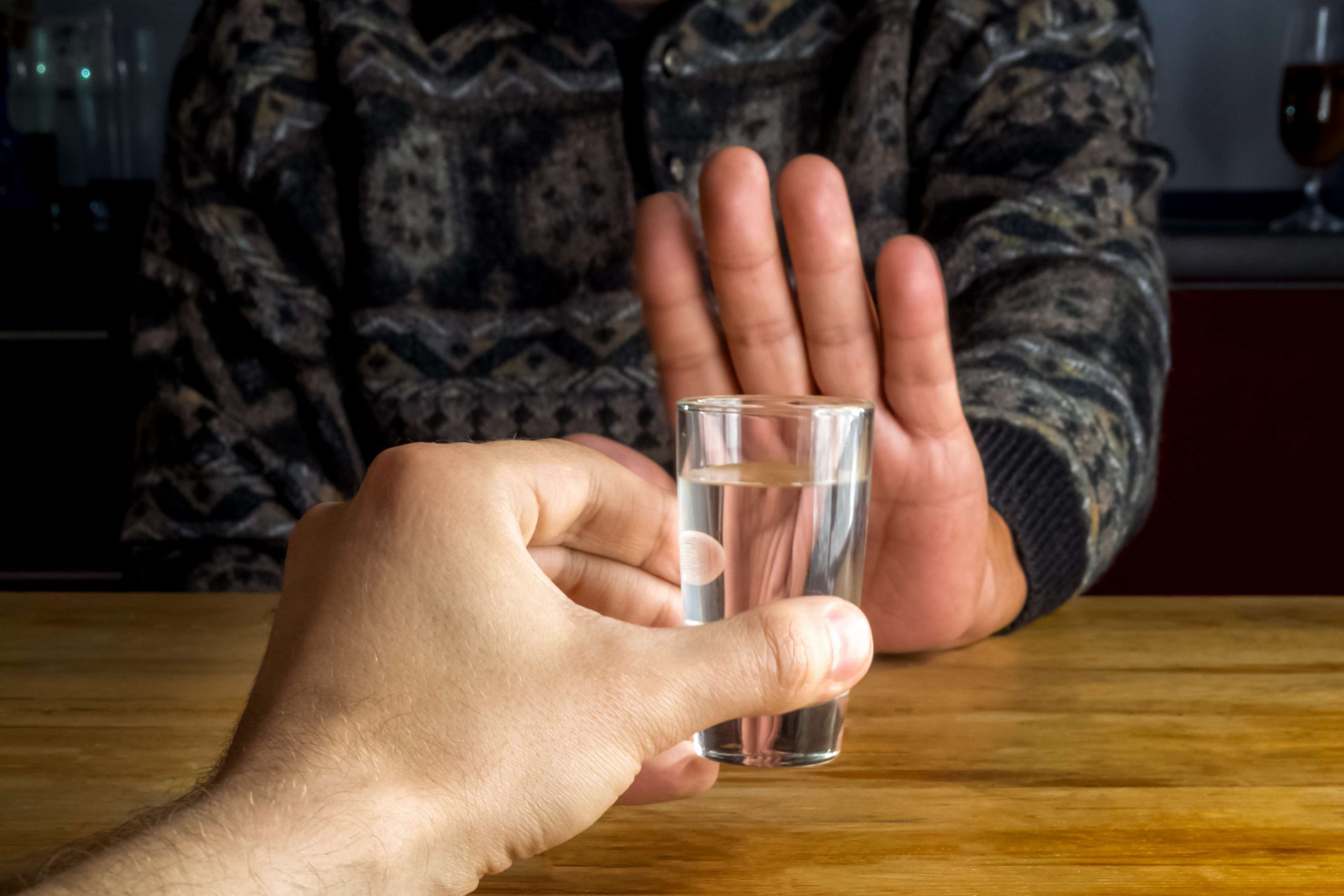Content
A positive mood is also affected by proper nutrition because it can positively affect an individual’s outlook on life–lessening the risk of relapse in some cases. Most people recover from alcohol withdrawal within a week, but people with severe dependency may experience withdrawal for multiple weeks. Alcohol causes serious changes in the brain, and prolonged symptoms such as sleep problems, mood changes and fatigue may take months to overcome, according to the U.S. You will also find information on spotting the signs and symptoms of substance use and hotlines for immediate assistance. Commonmedicationsinclude benzodiazepines to help treat symptoms likeanxiety,insomnia, and seizures.

Lorazepam is more suitable in patients with hepatic disease, in the elderly where there is risk of over sedation and respiratory depression with diazepam. Initial doses of 10 mg equivalents of diazepam are given intravenously/intramuscularly and alcohol withdrawal cure can be repeated every minutes . Some experts even advice and advocate use of loading doses of diazepam for management of DT. However, it is purely based on clinical experience as no clinical trials have been conducted in patients with DT.
Kinkaid Private Nursing Care Coordinates Medical Detox For Alcohol Withdrawals
The management should be individualized with the help of rating scales and use of Symptom Triggered regime, which is proved to be more effective as compared to Fixed Tapering dose regime. For delirium tremens and withdrawal seizures, treatment with high-dose benzodiazepines is recommended in ICU set up. Thiamine deficiency is commonly seen and serious complications in alcohol-dependent patients and hence, supplementation is widely recommended. Symptoms typically include anxiety, shakiness, sweating, vomiting, fast heart rate, and a mild fever. More severe symptoms may include seizures, hallucinations, and delirium tremens .

One of the side effects of alcohol withdrawal is poor-quality sleep. People living with alcohol use disorder are at more significant risks for sleep disorders, such as insomnia. Early symptoms of alcohol withdrawal usually start about six hours after the last drink. Early symptoms include headache, sweating, tremors, vomiting and difficulty concentrating. Expect to feel some discomfort, including anxiety, sweating or irritability. If you feel more severe symptoms, such as paranoia, increased pulse, or tremors sometimes called alcohol shakes, you should taper more slowly and consider seeking professional help. If you feel severe symptoms, such as hallucinations, rapid heartbeat or disorientation, call 911 immediately.
Jennifer is a registered nurse with more than 20 years of experience working in some of the most highly regarded hospitals in Los Angeles and Orange County. Over the years she has developed an extraordinary network of highly qualified nurses with various specialties. This network allows her to provide the best medical experience Addiction and match specialized nursing care to the specific needs of her clients. Individual or group therapy once or twice a week will provide the needed support when unforeseen life events or stressors challenge sobriety. Early recovery is a vulnerable time, when many experience feelings of loneliness or lack of confidence.
Alcohol Withdrawal Medications
There should be immediate intravenous access for all patients with seizures or DT. Adequate sedation should be provided to calm the patient as early as possible. Restraints should be avoided, however, may be used as required in order to prevent injuries due to agitation or violence. Electrolyte imbalances must be promptly corrected after investigations. Vitamin B1 supplementation helps to prevent Wernicke’s encephalopathy and should be given orally or intramuscularly to all the patients. Over the years, the treatment for alcohol detoxification has evolved from the use of gradual weaning schedule of alcohol itself to the use of benzodiazepines and the newer miscellaneous drugs. Prompt pharmacological treatment is indicated in all cases of AWS, as non-treatment or under treatment can be fatal .

These options have no filter content which can lead you to feel sluggish after meals. It’s important to remember that alcohol addiction is a lifelong journey, and you may have moments of temptation and recurrence of use, but this is common. No matter what method of treating alcohol use disorder you choose, various alternative treatments can make the road to sobriety easier. People trying to overcome alcohol use disorder may choose alternative and traditional treatments to boost their chances of success. Seizures can occur within the first 24 hours, but seizures occur only in about 25 percent of patients, according to the NIAAA. Many people attempt to self-detox at some point, and it’s often a string of failed attempts of self-detoxing that lead an individual to enter rehab in the first place.
Diagnosis Of Alcohol Withdrawal Syndrome
Although these studies suggest that a nonpharmacological approach to treating AW may work for most patients, the data do not provide specific guidance on the selection of treatment types. In addition, supportive care may be more costly, because a greater amount of nursing care may be required during nonpharmacological AW treatment. Until controlled studies of adequate duration and numbers of patients are studied, the role of pharmacological treatment of patients with AW symptoms will continue to be debated.

Stand in solidarity with everyone else who has decided to address their substance use disorder and the challenge required to achieve a healthier life. Great natural ways to stop alcohol cravings is eating a healthy diet. A healthy diet will include lean proteins such as chicken, eggs, and fish. It also contains lots of fresh fruits and vegetables, potatoes, beans, and whole grains. When you’re breaking the alcohol habit, your body gets dehydrated, and you get nauseous. Drinking water not only hydrates you but also lessens the shakes and alcohol cravings by flushing toxins out of your body.
Managing Alcohol Withdrawal
Your doctor may personally oversee your alcohol withdrawal, or he or she may refer you to an inpatient or outpatient treatment facility. Whatever recovery option you choose, it is important to have medical supervision. While some people may be able to deal with alcohol withdrawal symptoms at home without any serious problems, the safest way to stop drinking may be with a medically-supervised detox. Professional help could ensure that any health complications that arise are addressed immediately. These professionals may even administer medications to ease physical withdrawal symptoms and make this process easier. When alcohol detox is treated in an inpatient rehab facility, different medications may be used to help reduce uncomfortable withdrawal symptoms.
- Sedative detox medications can reduce agitation, halt withdrawal symptom progression, and minimize the likelihood of withdrawal seizures, DTs, and death.
- Before beginning the detoxification process, talk to your doctor about what symptoms you can expect and work together to choose appropriate supportive supplements.
- These assessments have employed a standard AW scale called the Clinical Institute of Withdrawal Assessment for Alcohol, revised (CIWA-Ar) (Saitz et al. 1994).
- Anti-convulsant drugs have been shown to block kindling in brain cells.
- Some herbal remedies, including kudzu, ashwagandha, and milk thistle, could support your recovery, too.
While you can also add electrolyte-rich sports drinks, never drink more than 2 quarts of fluids every hour. And because many people who drink struggle with depression, this herb can improve mood and stop alcohol cravings, and aid in breaking the alcohol habit. Making the choice to quit drinking requires courage and bravery. The process of detoxing is challenging, especially if you experience the alcohol shakes. Ashwagandha is sometimes used for alcohol withdrawal and cravings.
General Principles Of Supportive Care
That’s why our chefs and nutritionists are trained to provide a well-balanced diet for recovering drug or alcohol addicts such as yourself who need the right nutrients every day. Eating junk food can lead to a host of health problems, such as weight gain, high cholesterol, and blood pressure. Junk foods’ tendency to make you feel depressed or sluggish can also affect your mental state in addition to bodily organs like the heart and liver. You need foods to help aid in recovery, not make it more difficult. If you are in recovery from alcohol, one of the best foods for alcohol detox includes anything with electrolytes.
Tips For Reducing Alcohol Consumption – Forbes Health – Forbes
Tips For Reducing Alcohol Consumption – Forbes Health.
Posted: Fri, 25 Jun 2021 07:00:00 GMT [source]
Symptoms typically begin around six hours following the last drink, are worst at 24 to 72 hours, and improve by seven days. Very limited evidence indicates that topiramate or pregabalin may be useful in the treatment of alcohol withdrawal syndrome. A 2010 Cochrane review similarly reported that the evidence to support the role of anticonvulsants over benzodiazepines in the treatment of alcohol withdrawal is not supported. Paraldehyde combined with chloral hydrate showed superiority over chlordiazepoxide with regard to life-threatening side effects and carbamazepine may have advantages for certain symptoms. Long term anticonvulsant medications are not usually recommended in those who have had prior seizures due to withdrawal. Part of the detox process includes keeping the patient’s system in balance and avoiding major physiological upsets. Benzodiazepines, including Librium, Valium, and Ativan, are commonly used for alcohol treatment because they reduce alcohol withdrawal symptoms and also prevent alcohol withdrawal seizures.
Whatever it is, an injunction is something that you put in place to prevent you from experiencing a setback. Getting outside and going for a walk can do wonders if you are having a particularly rough time. Yes, it can certainly be difficult to pull yourself off of the couch or out of bed, but a good walk can completely recharge your mental and emotional state. Having someone to talk to while you have the alcohol shakes can help.

Many detoxification programs include medications that mimic the effects of alcohol to mitigate withdrawal symptoms. Medications may also target co-occurring disorders or general discomfort. While most clinicians agree that severe AW requires pharmacological treatment, studies suggest that some patients with mild withdrawal symptoms may benefit from supportive care alone. Certain medical disorders that commonly co-occur with alcoholism can exacerbate symptoms of AW or complicate its treatment. The purpose of supportive care is to treat such disorders and to remedy nutritional deficiencies. Vital signs (e.g., heartbeat and blood pressure) should be stabilized and disturbances of water and nutritional balances corrected. BZD’s are the drugs of choice for AWS in most of the treatment settings; however, anti-convulsant drugs may represent suitable alternatives.
Assessment Of Alcohol Withdrawal
Whole grains are also rich in fiber, but also provide a slow release of sugar into a person’s system to help prevent mood swings. They also help you feel fuller for longer and provide ongoing energy. You should strive to have at least one serving of whole grains a day. We need vitamins and minerals to make natural feel-good chemicals, GABA, in our bodies. They are also needed when the body makes energy, repairs organs, and strengthens immunity. Aralia elata is a component of a compound Chinese herbal formula traditionally used to prevent or mitigate alcohol intoxication. These are the best books to add to your shelf if you or your loved ones are dealing with alcoholism and addiction.
